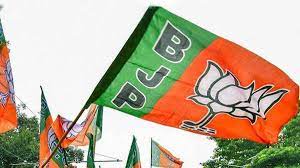It would be unfair to the BJP if superstitions are attributed only to its leaders, since members of many other political parties also indulge in superstitions

Politics in the country has reached a low ebb and that can be attributed to the pervert minds of a large number of those in the leadership of various political parties, coupled with the limited capacity of the brain (intellect would be a hypothetical word in the case of many) of a higher ratio of the public at large, which prevents critical thinking and application of mind, to the acts and statements of the politicians.
A large number of politicians, mostly belonging to the Bharatiya Janata Party, violate the provisions of Constitution of India, mentioned in Article 51A(h), which states our Fundamental Duty: “It shall be the duty of every citizen of India, to develop scientific temper, humanism and the spirit of inquiry and reform.”
India’s first Prime Minister, Jawaharlal Nehru, had a scientific temperament, hence he did not fall prey to the argument by some astrologers that August 15 was not an auspicious day to gain freedom from the British.
In the name of Hindutva, the BJP leadership has taken the public on the path of superstition on several occasions. It would be unfair to the BJP if superstitions are attributed only to its leaders, since members of many other political parties also indulge in superstitions, but these are often confined to their personal lives or of their families. The difference is that the BJP leaders have taken superstitious beliefs to the public domain, making millions believe in them.
Prime Minister Narendra Modi had said in a speech that the nation is progressing due to his good luck. Good luck and bad luck are concepts which cannot be accepted by rational and scientific minds. But those who accept that a person brings good luck, must also accept that the same person can bring bad luck too. But that is not so with any leader, irrespective of the party affiliation. No leader would like to take or be given the discredit for anything that goes wrong. This is especially so in the BJP. Electoral victories are attributed to the party leader Narendra Modi and failures to either the party as a whole or some specific leader.
Since millions in the country had come to believe that Modi brings good luck to the nation, their minds were conditioned to believe that there is good luck and bad luck; as a result, the BJP’s game of promoting Modi as a person who brings good luck boomeranged when Chandrayaan 2 failed. At that time there were very few in the country, who blamed Modi for bringing bad luck, the word in some Indian languages for bad luck being 'panauti'.
But the situation was worse for the BJP and Modi after India lost the World Cup Cricket final against Australia in a stadium named after Modi. It was sheer coincidence that though India was playing pretty well, Australia played better and did not lose a wicket till the last over, after Modi entered the stadium to witness the match. Rational minds cannot accept this argument, but we are a nation with a vast majority of irrational minds; as a result many felt that Modi is a 'panauti'.
Sycophancy is the key word in Indian politics and this disease exists in almost all the political parties in the country. While followers indulge in it, the leaders get immense pleasure to see sycophants around them, till the sycophancy creates embarrassing situations.
Blind faith in a leader and sycophancy can be dangerous and could lead to paranoid persecution complex. This was seen in two cases, involving two BJP leaders in recent times.
The first incident involved Modi. When Congress leader and Member of Parliament Rahul Gandhi was addressing an election rally in Rajasthan, there were some chants of 'panauti' from the audience. At this, Gandhi said that the Indian boys were playing well in the cricket final, but lost due to 'panauti'.
Though Gandhi did not name anybody as 'panauti', the sycophants lashed out at Gandhi for calling Modi a 'panauti', though in effect, it was these sycophants who ended up calling their leader so. The sycophants cannot be blamed for what they did, as they have learnt from their leader to twist statements of leaders of Opposition parties, especially those from the Congress, to their benefit. Modi had twisted Mani Shankar Aiyar’s statement, where the latter had called Modi a 'neech' (a person of low mentality). Modi went about saying that Aiyar had said that Modi is of neech (lower) caste and gave it a casteist colour.
The effect of protests by Modi’s blind followers, which included some senior television anchors, was that the message went to more people that Modi is a 'panauti'.
The other incident involved a photograph posted by Shiv Sena Member of Parliament Sanjay Raut, with a caption that a person blew up ?3.5 crore in a casino in Macau. Soon enough, many in the BJP came down heavily on Sanjay Raut stating that he was maligning Maharashtra BJP President Chandrashekhar Bawankule, though Raut had not said that the person in the photograph is Bawankule. In fact, in his interaction with the media on the issue, Raut repeatedly referred to “the person in the photograph”.
Bawankule did more damage to himself than that caused by his sycophants. He told the media that in most hotels abroad, one ‘has to cross’ the casino to go from one end to the other or even to go to one’s room. Bawankule would have done himself good by not reacting to the tweet. With his statement he has accepted that he is the person in the photograph, not realising that the person is seen gambling at the casino, not passing through it.
--FPJ